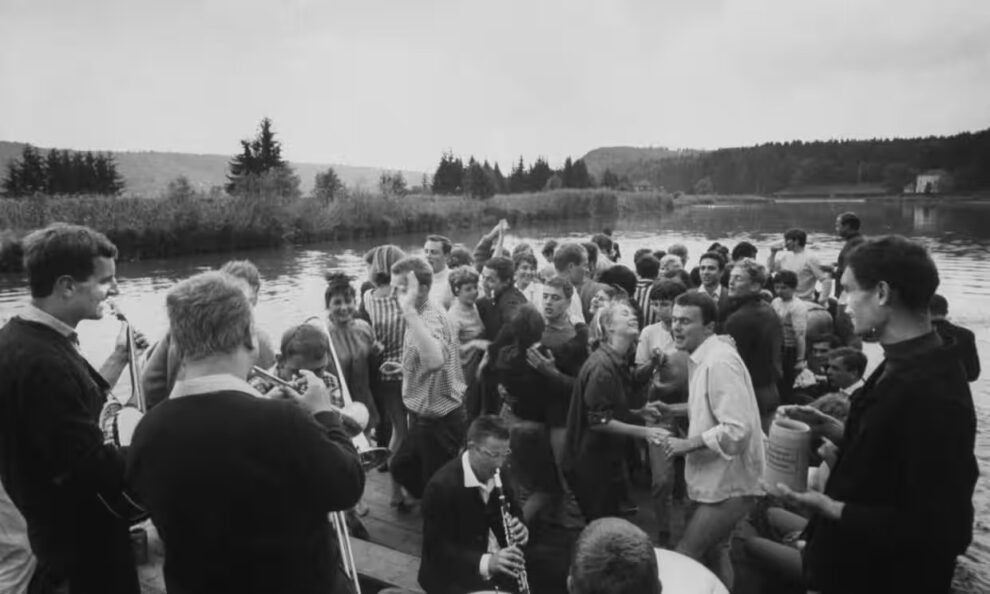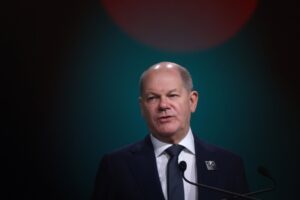Letter from abroad
Munich
The English-speaking tourists who pass through Munich during the summer months have quite a good chance of finding someone to help out if their German is inadequate. Most of the younger generation, at least, can speak some English – in many cases very good English. This is partly schooling, of course, but a great deal must be put down to the postwar interest in – perhaps not England, but certainly America.
As in the rest of Europe the most obtrusive signs of this interest might be summed up as jazz and jeans. But even here the phrase indicates the linguistic aspect, for both words have been adopted as they stand, although German does not itself possess the English ‘j’ sound.
Before the war jazz was part of the German scene all right, but that generation pronounced the word according to German rules “yatz.” But for today’s teenager the American background is so intrinsic to the thing that he adopts the English pronunciation, together with “swing,” “sweet,” “cool,” and the rest of it.
English has, in fact, been adopted chiefly by two groups, the teenagers (another borrowing incidentally) and the modish. It was recently reported that, on an average, one English word now occurs on every page of a German newspaper. And the slicker or glossier the publication the more pronounced the influence.
Purists have been fighting the intrusion of foreign words into German probably since the Nibelungs, but just as a couple of centuries ago, the fashionable Berliner adopted the Plumeau and the Trottoir in place of the Daunendecke and the Bürgersteig, so now the lemon squash is superseding the citron pressé. And the German who is looking for status symbols, will offer you whisky at his party and will have built himself not an old-fashioned Planschbecken but a “swimming pool.”
Source : The Guardian









